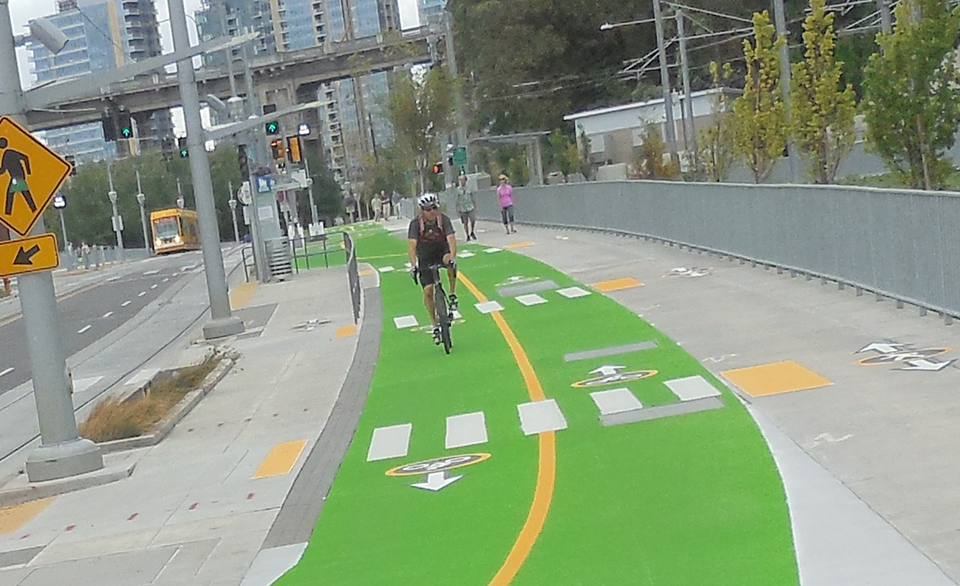- To get people on bikes, cities need to protect cyclists. Three of the top four reasons why people don't ride bikes involve fear of riding in traffic, including drivers' aggressive behavior and the possibility of getting hit by a car, according to a Melbourne study. (Treehugger)
- $406 million for 140 earmarks for transit projects are included in the federal omnibus spending bill, such as funding for track improvements in Connecticut, zero-emissions buses in Hawaii and microtransit in suburban Atlanta (Mass Transit).
- It also includes a $121 million boost for Amtrak, though that's less than what the White House requested (Trains).
- President Biden announced $1.6 billion in infrastructure funding for the Brent Spence Bridge between Kentucky and Ohio. (Washington Post)
- Size doesn't matter — at least when it comes to commuting. MIT researchers used Chinese workers' cellphone data to calculate that their average commute is five miles, regardless of their cities' population. (Archinect)
- The transit industry is having a hard time attracting office workers. (Transit Center)
- Cities should be updating their regulations in preparation for the rollout of EV chargers. (Smart Cities Dive)
- The Texas DOT's preferred option for widening I-35 in Austin would put the freeway below grade, add two lanes, displace 107 homes and businesses and require the city to pay $800 million if it wants caps over the freeway. (KUT)
- Colorado Gov. Jared Polis is proposing more incentives to buy electric cars, bikes and even lawnmowers. (Colorado Public Radio)
- The Charlotte Area Transit System now says the Silver Line under development would pick up more passengers by skirting uptown rather than going through it, as some transit advocates want. (WFAE)
- Cleveland planners want to rezone the city and its suburbs to encourage transit-oriented development and discourage sprawl. (Plain Dealer)
- The Oregon DOT should use congestion pricing to unstick traffic on I-5 and fund the struggling transit agency TriMet. (Willamette Week)
- A road diet in Des Moines unexpectedly resulted in drivers going even faster, but crashes still declined. (Axios)
- The two-car trains that serve Japan's rural communities are dying. (RFI)
- Regulators in Australia want electric vehicles to make some kind of noise to warn pedestrians. But what should it sound like? (The Guardian)
Stay in touch
Sign up for our free newsletter
More from Streetsblog USA
Is The Safety Of Roundabouts Just For Rich People?
And if not, how do we get more of them in the low-income neighborhoods that need life-saving infrastructure the most?
Thursday’s Headlines Need Alternatives
Economics 101: Competition brings down costs.
How Recreational Cycling Can Lead to Safe Streets For All
These cities are leveraging joy to fight for connected communities.
Kansas City is Again Expanding Its Once-Mocked Streetcar
The Midwestern city is showing the country that investing in transit really can work wonders.
Wednesday’s Headlines Will See You in Court
The lawsuits are already starting over the Trump administration's decision to stop regulating greenhouse gas emissions.
Tuesday’s Headlines Went the Wrong Way
Multi-lane one-way streets: bad. Single-lane two-way streets: good.






